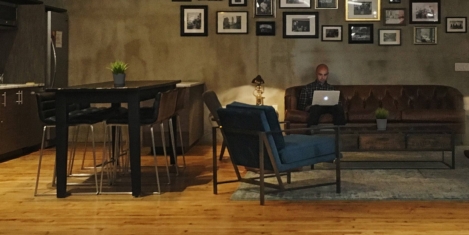July 24, 2017
Flexible working increasingly seen as top option, claims major new study
 A new report from ManpowerGroup Solutions claims that 40 percent of job candidates cite flexible working as one of their three most important career considerations. The firm polled 14,000 people in 19 countries. Among the countries surveyed, the US had the highest percentage of job candidates who want work flexibility (45 percent). A majority (63 percent) of workers said they believe they can work outside the office, and the number of men who want flexibility has significantly increased according to the study. The report, Work, for Me: Understanding Candidate Preferences for Flexibility, Manpower Group Solutions claims to offer ‘both the immediate steps and the long-term actions that companies can take to better meet their prospective employees’ preferences around flexibility’.
A new report from ManpowerGroup Solutions claims that 40 percent of job candidates cite flexible working as one of their three most important career considerations. The firm polled 14,000 people in 19 countries. Among the countries surveyed, the US had the highest percentage of job candidates who want work flexibility (45 percent). A majority (63 percent) of workers said they believe they can work outside the office, and the number of men who want flexibility has significantly increased according to the study. The report, Work, for Me: Understanding Candidate Preferences for Flexibility, Manpower Group Solutions claims to offer ‘both the immediate steps and the long-term actions that companies can take to better meet their prospective employees’ preferences around flexibility’.



















 New guidance to help facilities managers manage the transition to agile working within their organisation has just been published by the British Institute of Facilities Management (BIFM). The Agile Working Change Management Guidance Note is aimed at FMs working at a senior and/or operational level and covers the benefits of agile working and how to successfully plan and implement an integrated approach to deliver sustainable change in working behaviour. Agile working describes a range of work settings that allow people and organisations to make new choices about when, where and how they work. It is underpinned by mobile technology and applies to people working both in and away from the traditional office, such as at home, on the road or remotely in other locations. BIFM’s research and information manager Peter Brogan said: “As an Institute, we recognise the importance of the workplace agenda for FMs and this newly commissioned Guidance Note aims to address the current lack of knowledge around some of the emerging workplace practices.”
New guidance to help facilities managers manage the transition to agile working within their organisation has just been published by the British Institute of Facilities Management (BIFM). The Agile Working Change Management Guidance Note is aimed at FMs working at a senior and/or operational level and covers the benefits of agile working and how to successfully plan and implement an integrated approach to deliver sustainable change in working behaviour. Agile working describes a range of work settings that allow people and organisations to make new choices about when, where and how they work. It is underpinned by mobile technology and applies to people working both in and away from the traditional office, such as at home, on the road or remotely in other locations. BIFM’s research and information manager Peter Brogan said: “As an Institute, we recognise the importance of the workplace agenda for FMs and this newly commissioned Guidance Note aims to address the current lack of knowledge around some of the emerging workplace practices.”



 Flexible working can increase employee job satisfaction and organisational commitment, but staff who work flexibly under an ad hoc arrangement appear to perform better than those who go through a more formal process, according to research from
Flexible working can increase employee job satisfaction and organisational commitment, but staff who work flexibly under an ad hoc arrangement appear to perform better than those who go through a more formal process, according to research from 







July 13, 2017
What we may be missing about IBM’s decision on flexible working 0
by Gary Chandler • Comment, Flexible working, Property, Workplace design
(more…)